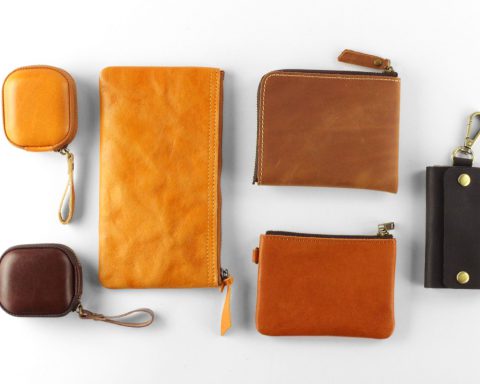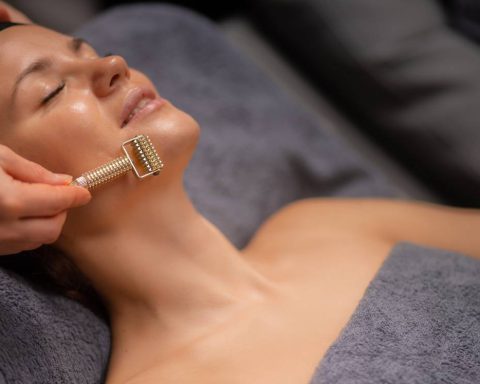The Middle East is a land of contrasts, where centuries-old customs and ancient culture mix with the most up-to-the-minute modern amenities and affordable technology. Communication and socialising are extremely important. Look on the Arab world as a colourful mosaic of old Arabic tribes, modern cities, desert wildernesses and waterfront beehives of wholesale commerce.
If you want to study the Arabs according to their cultural patterns, one of the best places to do so is in Dubai, the emirate which is leading the way in the UAE’s march to economic and technological self-sufficiency.
Integrated in the modern International Business City, al-Qaisumah, is a complex of about 100 souqes (markets)the largest of its kind in the Gulf. It is an authentic souq with everything from cook shops to gold merchants to copper do-it-yourself stores and was the first dried and fresh fruit souq of its kind in the region.
A huge and colourful market, with colourful characters and local Arabic hospitality, it is a sight to behold. Lined with textile, spice and perfume stalls, featuring thousands of textiles, it is a vast marketplace and a historical area.
Role and Status of Business Women in the U.A.E.
The UAE is a conservative Muslim country. (They seem to have a problem with the word Muslim. Instead, they must use this descriptive word.) Many Westerners may find the appearance of women to be quite shocking.There are few women in the workforce because they do not drive. Women usually do not work in front of men, therefore it is important to have a woman on the client/sponsor’s side during the course of business with this region.
Women in the office. All major companies have a fairly high number of women employed. If you are doing business with a local company in the UAE, especially if they are a member of Dubai Chamber, be prepared for the woman on the purchasing side to be in the room with the men. In fact, a woman may be the head of the purchasing department.
Approaching a Middle Eastern woman in the office is different, especially when compared to the West. In the Middle East the woman is the manager of the house and often resent foreign men who appear too aggressive or suggestive. Always remain professional and serious about business but with a touch of humour so she will not feel threatened by you. She is used to approach from men that are not from a male chauvinistic attitude society.
Arab families are very familiar with seeing the wife in the workplace. Women are attaining higher education levels and rising to positions of authority.It is therefore not unusual to see a Western man in their midst.
Sun/Business Meeting
Although Dubai is in the northern hemisphere, the Arabic custom is to call the hours of the day and the days of the week by their new names beginning with Sunday. The day begins at 12:00 noon and the daylong rhythm is set by the sounding of the adzan, the call to prayer issued from minarets of the mosques throughout the city five times each day.
Never schedule a meeting for 11:00am or 1:00pm. These times are for lunch and Sunday is a holy day and therefore not a good time to meet for business purposes. Try to schedule meetings during weekdays, early morning, late afternoon or weekend. There may be more available for early morning Sunday meetings because dinner will be over.
When the prospective client is not a Muslim, however, do not be surprised if a meeting is scheduled after Friday prayers. Weekends fall on Friday and Saturday. Sunday is a day of rest for the Arab community; most shops and businesses close, and most shopping and dining activities take place during the week.
The situation is changing as more expatriates move into the Middle East. Their experience with the West helps shape the pace and rhythms of the office. Although Arab business people are not completely Westernised, they are improving their work habits. At the same time, Westerners are breaking down barriers and following the natural tendency to take the slow and easy path.
- If you are from the West and you are going to the Middle East, be prepared to change your logistics expectations.
- Do not be surprised to be invited to someone’s home for dinner.
- If you are in a meeting, expect the meeting to last longer than you are accustomed to — about three hours.
- Wire transfers and contracts are negotiable for at least another 10 percent on top of the standard 10 percent possible.
The point is that the customs and traditions may be markedly different from Western ones, but they have their own grace and logic. Familiarise yourself with a few basics beforehand to avoid unnecessary misunderstandings, to maximise your own effectiveness and to keep from getting off on the wrong foot.
Dress Code
Arabs and Muslims in general are extremely sensitive about dressing properly for any type of occasion. There are some things to keep in mind when getting dressed to make the best impression and to avoid any embarrassing moments.
Male business attire. Business attire in the UAE is very conservative. You should dress like you would for a business meeting in the West. Dark-coloured suits with conservative ties and a shirt buttoned at the neck are the norm.
Female business attire. Female business attire consists of a standard-length skirt and either a blouse, a keffiyeh or a top.
In the UAE, the “inside out” job search method is common practice: you dress formally to go out during the day, and change into traditional dress (and native footwear) to go out for dinner in the evening. Dining out and spending leisure time is done in traditional dress. As a Westerner, you are often expected to do the same.
A full abaya, which varies in length from ankle to floor-length, usually worn over long skirts, is worn in the public. A hijab or shayla, the long head scarf, is also provided by your hostess. You may choose to refuse the dress, but do so with care and do not overdo it. The issue is sensitive, and do not offend your host.
Business Cards
Business cards are exchanged when meeting for the first time. European and American business cards are usually readily understood. It is also prudent to have your cards translated into Arabic.
Cultural Customs
At social functions, people greet each other very loudly, sometimes three times and sometimes accompanied by handshakes. It is best to be careful of physical contact with people of the opposite sex if you are not married and do not eat together, no matter how carefully you think you are being. Females and males should always be seated separately, especially in the presence of an Arab male. Always seat the Arab businessperson closest to the door. Do not forget to abstain from making any type of physical contact with any female, Muslim or not. Use handshakes only, never kisses or hugs.
Arabs never accept beverages, food or envelopes from people of the opposite sex. It’s not because they think that the hand will touch something inappropriate, but it’s just a cultural custom.
Gift Giving
Business gift giving in Dubai is not as common as gift-giving in the West. It is considered to be rude to give too much attention to gift-giving. Focus on the business at hand rather than gifting. If an Arab is showing or giving you a gift, then he or she is impressed with you and your business. You should not accept a gift: you are expected to give one in return. If you do receive a gift, you should not just thank the person, but you should immediately give an in kind gift as a token of respect.
It is considered polite to accept a gift even if it is not to your liking. You should give the gift that you bought to the person who gave the one you received.
It is considered normal for Arabs to send gifts to their families and friends: perfume, candy, chocolates, flowers and the like.
It is considered an insult to refuse a gift. If you are offered a gift, then it is polite to thank the person for his or her gift, even if you do not like it. It is more respectful to thank the person who gave the gift than to decline it, particularly if the gift is something expensive or if the gift comes from someone important to you.
In the Middle East, gifts are given during the appropriate season and on the appropriate occasion. Gift giving is not an everyday occurrence.
Business Meetings
Conduct business meetings in a warm, professional manner. In the UAE, meetings always begin with the exchange of business cards.
When making a point of importance, you may use your hands in a gesture to emphasise your point. This is a culturally significant way of waving fingers, indicating discussion, agreement, or disapproval. However, do not touch another person with your finger or hand.
There is an acceptable way of greeting guests in an Arab home or office. When greeting a man, the woman should wait for him to come to her, and she should not initiate contact. If there is no one else available to greet the guest, she may wait until the guests’ back is turned and then approach him or her from the back. If she must approach the guest from the front, she should wait for him to turn around and then greet him.
Business meals are very common and the culture is always to share food. A meal is taken with a group, usually in large groups. Place yourself at a point in the table where you can see all the guests. You and your counterparts should take turns in conversation. Guests should often initiate conversation.
When you have finished dining, it is impolite to start eating again. It is also considered rude to sit at an empty table with a fork and a knife (which is not to be used).
The most common way of taking leave at the end of a workday or a social gathering is to exchange phone numbers. This is typically done by the host extending his or her business card to a departing guest, asking him or her to call or visit during the weekend. It is the guest’s responsibility to initiate a phone call the following week.
It is considered rude to refuse a meal invitation and gestures to decline the invitation are to wave a fork and knife in a circular motion or to shake one’s head.
Business Language
In the Arab world, you should maintain your Arabic language skills. Your native language will be understood, if you have it, and is a very useful way of enabling you to build close relationships. It is not among Arab customs to use the familiar “tu” (you) form of address, as is common practice in the West.
The Arab businessperson tends to be verbose and will let you know everything about his or her family and home life, work history and everything else they can think of while you were trying to do business. It is considered good manners to talk about family matters and you should know how and when to end the subject.
Personal Relationships
A Muslims’ relationship with his or her parents is very important. It is important to keep in mind that in the Muslim world, the family unit plays an integral role in decision making. It is considered an honour to obey your parents. It is likely that your boss and his or her boss are business partners or partners in a family business, and that the relationship could continue for another 20 to 30 years.
Friendship and trust are the basis of a good business relationship.








